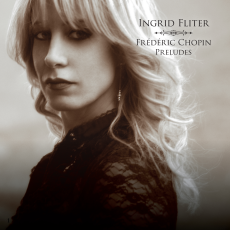Ingrid Fliter - Chopin: Preludes - The Telegraph
With two previous EMI discs of Chopinand a recent one of the piano concertos on Linn, Ingrid Fliter is back in the world she loves with this new one of Chopin's 24 Preludes Op 28. At the end there is a selection of mazurkas and two of the nocturnes. As Jim Samson comments in his booklet notes, "Chopin's preludes demand to be treated as works of weight and significance" rather than written-out improvisations that characterised the prelude genre before Chopin got his hands on it.
Fliter understands these pieces from the inside. You can hear from her playing not only that she adores the music but also that she appreciates the characteristics, the sentiments, the ideas that Chopin was distilling in these jewel-like creations. Listening to the G major Prelude (No 3), for instance, the left-hand ripples are beautifully articulated as undulating shapes so that you are quite aware that they are a distinguishing feature of the piece, but at the same time Fliter etches in with a glowing tone the right-hand dotted figures that describe the music's harmony. Then follows the slow E minor prelude with its nocturne-like line in the right hand and the chromatically descending chords in the left, ideally balanced here with just the right emphasis of inflection in the melody and a delicate judgment of weight and touch in the left hand. Fliter crystallises the moods precisely, neither over-emphasising the emotion nor short-changing the music. This is nowhere so evident as in Fliter's poise and eloquent restraint in the tiny A major Prelude (No 7). When it comes to the more extrovert preludes, she is equally in tune with the challenges, bringing a powerful surge, for example, to the F sharp minor Prelude (No 8), brilliant sparks to the B flat minor (No 16) or a dark bravura to the D minor (No 24). With the beautifully modulated mazurkas she has a winning instinct for the subtleties of rhythm and the mix of plaintive, nostalgic feelings that the music implies, and the two Nocturnes Op 9 No 3 and Op 27 No 2 highlight the lyrical gifts that are manifest throughout a gorgeous disc.

